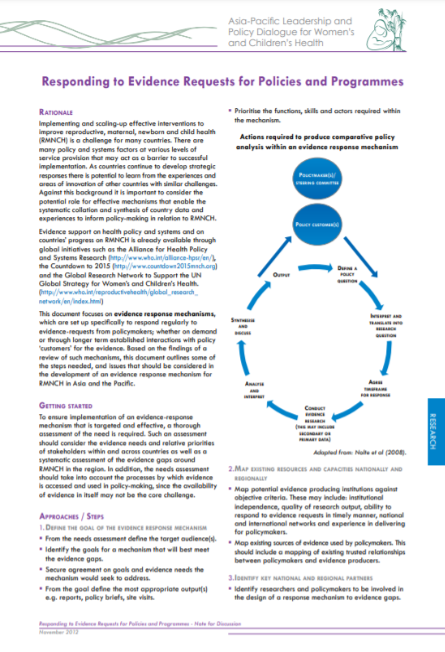Responding to evidence requests for policies and programmes

Overview
Implementing and scaling-up effective interventions to
improve reproductive, maternal, newborn and child health
(RMNCH) is a challenge for many countries. There are
many policy and systems factors at various levels of
service provision that may act as a barrier to successful
implementation. As countries continue to develop strategic
responses there is potential to learn from the experiences and
areas of innovation of other countries with similar challenges.
Against this background it is important to consider the
potential role for effective mechanisms that enable the
systematic collation and synthesis of country data and
experiences to inform policy-making in relation to RMNCH.
Evidence support on health policy and systems and on
countries’ progress on RMNCH is already available through
global initiatives such as the Alliance for Health Policy
and Systems Research (http://www.who.int/alliance-hpsr/en/),
the Countdown to 2015 (http://www.countdown2015mnch.org)
and the Global Research Network to Support the UN
Global Strategy for Women’s and Children’s Health.
(http://www.who.int/reproductivehealth/global_research_
network/en/index.html)
This document focuses on evidence response mechanisms,
which are set up specifically to respond regularly to
evidence-requests from policymakers; whether on demand
or through longer term established interactions with policy
‘customers’ for the evidence. Based on the findings of a
review of such mechanisms, this document outlines some of
the steps needed, and issues that should be considered in
the development of an evidence response mechanism for
RMNCH in Asia and the Pacific.

.png?sfvrsn=6d0e27cd_1)



